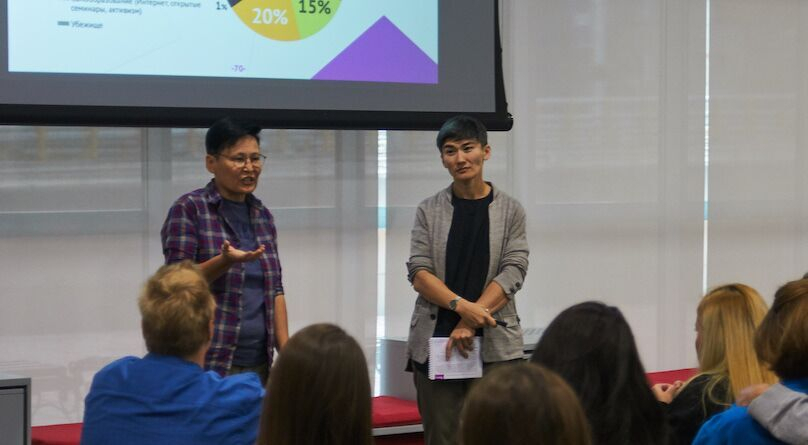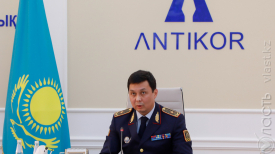Kazakhstan’s President Kassym-Jomart Tokayev appointed on February 28 Yersayin Nagaspayev as the new minister of industry. His predecessor, Kanat Sharlapayev, was named presidential aide for economic issues. Nagaspayev had previously worked at Kazakhstan Railways. Former presidential aide Asset Irgaliyev was named head of the Agency for strategic planning and reforms, a post he held in 2022-2023.
Kazakhstan’s government published on February 25 the official decree determining the southern Almaty region as the location of the prospective nuclear power plant. Specifically, the NPP will be built near the village of Ulken, close to Lake Balkhash. The following day, the ministry of energy said it plans to select a contractor for the construction of the NPP by July 1.
Minister of energy Almasadam Satkaliyev said on February 26 that the damage to a pumping station in Russia will not affect the flow of Kazakhstan’s oil through the Caspian Pipeline Consortium. Russian authorities had earlier said that the February 17 Ukrainian drone attack against the Kropotkinskaya pumping station would have reduced the flow of oil by at least 30% for a couple of months. Around 80% of Kazakhstan’s oil exports flow through the CPC.
The ministry of economy said on February 27 that inflation will likely jump to 12% in 2026, after the new VAT rules come into force. A proposed tax reform will establish the increase of value-added tax from 12% to 16% from January 2026. The forecast also expects a contraction in the country’s GDP next year. Both trends, according to the government, will have a short term negative effect on the country’s economy.
A court in Almaty upheld on February 27 a sentence against Gulzada Serzhan for heading an unregistered association and fined the co-founder of feminist organization Feminita 393,000 tenge (around $800). The following day, police in Almaty detained Zhanar Sekerbayeva, the other Feminita co-founder, allegedly for violating the law on peaceful assemblies during a rally in May 2024. The activists claim this is part of a repressive campaign against them.
Police in Almaty detained on February 24 Timofei Morozov, a Russian citizen who had come out to Republic Square with a placard that said “Ukraine will win, Russia will be free.” One-person rallies are not allowed in Kazakhstan without prior consent from the local authorities. Morozov was later fined 196,000 tenge ($400) for breaking the law on peaceful assembly.
Askhat Khassenov, the chairman of Kazmunaigas, the state-owned oil and gas company, said on February 22 that Kazakhstan wants to increase its share in Tengizchevroil, the largest oil producer in the country. Kazmunaigas currently holds a 25% stake, alongside US giants Chevron (50%) and Exxon (20%), and Russia’s LukArco (5%).
Two Almaty-registered companies, MetallStan (also known as Stanex) and Kazstanex, were added on February 24 to the European Union’s latest sanctions package. The announcement comes on the day that marks the third year since the start of Russia’s war of aggression against Ukraine. [Read more here]
Nasdaq-listed Kaspi.kz will likely not pay dividends for 2024, the fintech company said in a notice for its annual shareholders meeting, published on Kazakhstan’s Stock Exchange on February 26. At the annual general meeting, scheduled for on March 28, the board will not recommend a payout to shareholders. [Read more here]
The S&P rating agency confirmed on February 21 Kazakhstan’s sovereign credit rating at BBB-, with a “stable” outlook. The agency highlighted the GDP growth in the non-oil sector as a positive factor. Meanwhile, analysts at Halyk Finance said in a report that the positive figures on GDP growth and inflation slowing might be inflated.
Two former officials of the northern Pavlodar region were sentenced on February 26 to so-called “restricted freedom” (a form of non-custodial sentence), after they were found guilty of negligence in the case of the industrial accident that led to the death of four workers at a gold mining site operated by Maikainzoloto in January last year. A court in Astana sentenced six company officials to house arrest last summer, after finding the company guilty.
A court in Shakhtinsk, in the central Karaganda region, sentenced four defendants in the case of the accident at the Kazakhstanskaya mine, which led to the death of five miners in August 2023. The defendants were all workers of ArcelorMittal Temirtau, the company that operated the mine. They were sentenced to four years in prison. In late 2023, ArcelorMittal Temirtau sold its assets to a Kazakhstani businessman and was renamed Qarmet.
Поддержите журналистику, которой доверяют.








